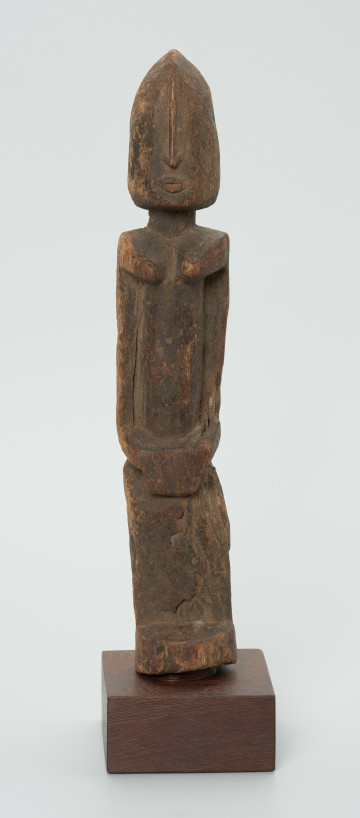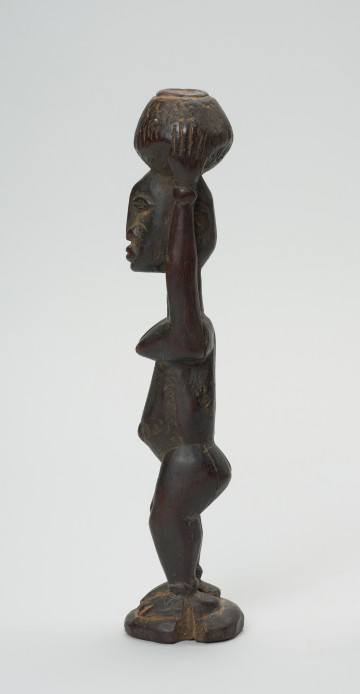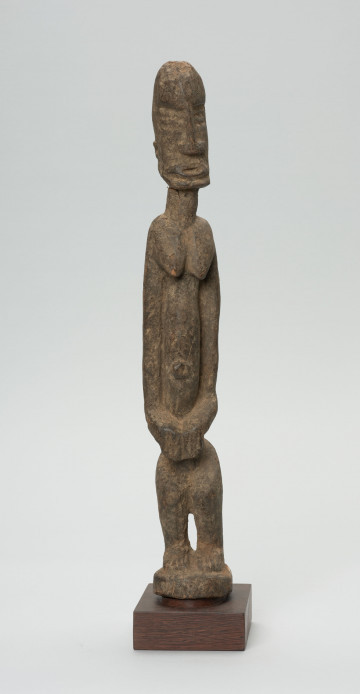
Figure - woman
między 1951 — 2000
National Museum in Szczecin
Part of the collection: Collection of Dogonian art
A Dogon man may have more than one wife, but the most important great wife is always the one who first moved in with her husband and had his first child. Although there is a certain amount of sexual freedom among the Dogon, wife abductions occur, having a lover or mistress is accepted, but marital fidelity is ideal. The priests pointed out that during prayers, they tell the gathered people not to take their friends' wives because Amma and the ancestors can see that. The Dogon people repeat in their conversations that co-wives in a polygynous family live in harmony, friendship and share responsibilities, but wives are often jealous of their husband and compete for his attention and a better future for their children. There are also cases where husbands do not treat their wives equally. Sometimes such a situation can lead to divorce, although it rarely happens in the Dogon country. The divorce between spouses does not require any special procedures. A declaration by one of the parties that he or she no longer wishes to remain in the relationship is enough, and the marriage ceases to exist. A woman who wants to leave her husband moves to another man and becomes his ya-kedu (wife he obtained from kidnapping). The patriarch of the family, ginna bana, to whom she has moved may, at the request of her abandoned husband, order her to return home, but if the woman does not want to change her decision, her first husband's family may no longer bother her and persuade her to return. Women often move back to their family homes. Whether a wife moves to her parents or another man, she always takes with her young children who need care. However, when the children grow up, they return to their father's family.
Ewa Prądzyńska
Author / creator
Dimensions
cały obiekt: height: 67 cm, width: 13,8 cm
Object type
figure
Creation time / dating
Creation / finding place
Identification number
Location / status

między 1951 — 2000
National Museum in Szczecin

między 1951 — 2000
National Museum in Szczecin

między 1951 — 2000
National Museum in Szczecin
DISCOVER this TOPIC
National Museum in Lublin
DISCOVER this PATH
Educational path